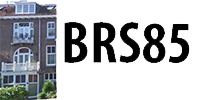 LISTEN addresses the urgent demand to structure and create access to thousands of interviews that contain invaluable knowledge on 20th century Dutch societal and cultural DNA, but are scattered around in archives and museums and secluded in drawers and computers of scholars. Analogous to the creation of central archives in the 19th century to systemize written documents there, a central structured overview of the staggering amount of audio-visual narrative sources is badly needed. LISTEN enables researchers to ask new questions to the material across disciplines about identity, norms and values, and cultural memory. It provides an additional digital workspace within Media Studies, one of the three pillars of CLARIAH, a programme that guarantees a sustainable infrastructure for the centralized curation, findability and analysis of digitized humanities data.
LISTEN addresses the urgent demand to structure and create access to thousands of interviews that contain invaluable knowledge on 20th century Dutch societal and cultural DNA, but are scattered around in archives and museums and secluded in drawers and computers of scholars. Analogous to the creation of central archives in the 19th century to systemize written documents there, a central structured overview of the staggering amount of audio-visual narrative sources is badly needed. LISTEN enables researchers to ask new questions to the material across disciplines about identity, norms and values, and cultural memory. It provides an additional digital workspace within Media Studies, one of the three pillars of CLARIAH, a programme that guarantees a sustainable infrastructure for the centralized curation, findability and analysis of digitized humanities data.
LISTEN explicitly focuses on a neglected area: the re-use of personal audio-visual narratives. More recent data also include video recordings of political debates, meetings and focus groups.
LISTEN draws on the first person narratives generated by social scientists, economics, political science the humanities and other disciplines, to study how people perceive social reality, recall their personal past or shape their cultural practices. Topics covered are the daily lives of people of all ranks and classes, migration, political movements, the position of minorities, the changing role of women and the lived experiences of victims of war and violence. In archives similar data is created in the form of collections, not with the goal of answering research questions, but to preserve lived experiences for future listeners. Interviews illuminate identities, worldviews and emotions as they are mediated through language, speech and memory. With the introduction of video-recordings, a visual layer of information has been added. The possibility to detect, extract and analyse all these layers of information offers a challenging research agenda. Its uptake is however hampered by lack of capacity to deal with the fast increasing amount of recordings, the lack of standardization of the (meta)data and lack of clarity about the legal status of the material. How to retrieve knowledge from 250 interviews with migrants conducted in the last thirty years by various scholars, without having to listen to every single one, manually annotate each one, and run the risk of breaching laws on privacy and copyright? Solutions will be provided by LISTEN. It will identify suitable data in academia and archives, standardize formats, facilitate harvesting to a safe environment, and curate it along an updated legal and ethical framework, in order to make the sources searchable and suitable for analysis, publishing, and re-use. Moreover LISTEN supports the acquirement of multimodal literacy and of multidisciplinary skills. Both are necessary in the light of the increase of audio-visual data and the merging of scholarly fields. An investment in LISTEN will contribute to research that is innovative, efficient, safe and that will induce scholars to not only read but also LISTEN carefully.
More information can be found here.
